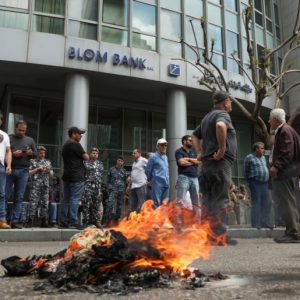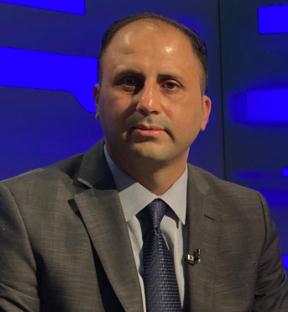For more than 3 years, the Lebanese have not stopped organizing sporadic protests amid a severe economic crisis, and have directed their anger at the country’s political elite, and one of the most prominent targets was Riad Salameh, Governor of the Banque du Liban.
However, Riad Salameh and his legal accountability is no longer a goal for the Lebanese alone, but has also become a target for many European countries, which have begun to demand that he be held accountable and legally accountable.
However, as usual, Lebanon does not extradite its citizens, but the investigations into Salame’s alleged crimes – including embezzlement, money laundering, illegal enrichment and tax evasion – under way in Lebanon and six European countries, could mark a turning point for Lebanon, according to many observers.
Observers of Lebanese affairs believe that these investigations have achieved, for the first time in years, some accountability for many Lebanese, and this is a small sign that change may come.
In a phone call to 24H with the Lebanese academic and political analyst, Dr. Muhammad Musa, he says that the reputation of the Lebanese banking sector is at stake, from the deposits of the Lebanese to the incidents of storming Lebanese banks, all the way to the investigations with the Governor of the Central Bank of Lebanon, Riad Salameh.
Dr. Moussa adds that there is talk of issuing several arrest warrants against Salameh from many European countries, stressing that the reputation of this sector will not return until the deposits are returned to their owners, and a real criminal investigation is carried out with the bank owners.
The Lebanese academic indicates that Germany summoned 5 people, and France summoned names other than Riad Salameh, including Marwan Khair El-Din, and accountability will be their collection regarding real violations and a penal offense.
Dr. Musa expects many faces to fall, like dominoes, but all of this depends on the investigation, noting that no public figure can hide from the red notice of the International Interpol, or perhaps those wanted will be tried in Lebanon.

Can Lebanon keep the wanted?
The Lebanese academic answers this question by saying that there is a possibility that Lebanon will retain its right to try those wanted by the international Interpol, but the question here is whether Lebanon can withstand an international legal storm by taking this measure.
Dr. Moussa confirms that the banking cartel in Lebanon has not sensed the danger yet, otherwise it would have taken corrective measures for the current situation in Lebanon, but the international microscope today is monitoring the Lebanese financial situation and its developments.
The Lebanese academic believes that the stage after Salameh’s exit from the presidency of the Central Bank of Lebanon at the end of July will be a new stage in dealing with Lebanese bankers.


















